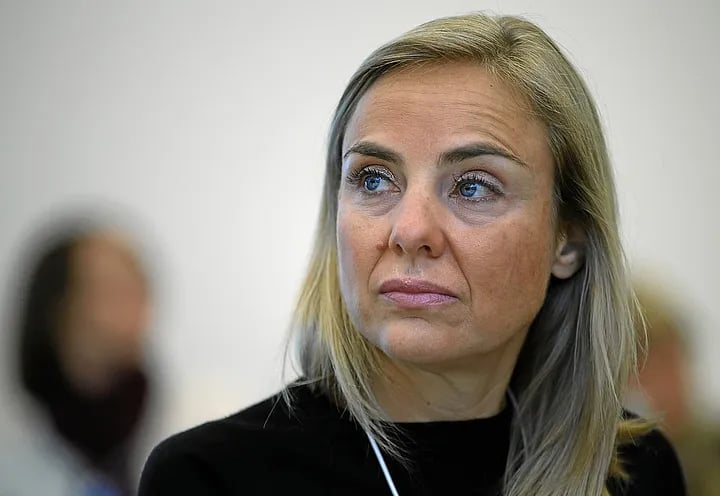Mina Guli, founder and CEO of Thirst Foundation
In our regular series, industry big wigs take us back to their first jobs

Hi, Mina! Who are you and what do you do?
I’m Mina, and I’m the founder and CEO of Thirst Foundation. We run massive, out-of-the-box global campaigns to put water onto the global agenda to help solve the global water crisis. I’m in the midst of running 200 marathons around the world to raise awareness, but I’m currently in isolation in Nairobi in Kenya with Covid. So tomorrow I’ve got to somehow muster up the energy to get on the treadmill and do a marathon.
Oh no! Get well soon! What was your first McJob?
Umpiring softball, age 15 or 16, in Melbourne, Australia. Every club has to provide umpires, so I said: “I can do that.” I thought that being able to make split second decisions based on judgment and a set of rules in a very stressful set of circumstances would be a good life skill. I was also terrible at sport, so it meant I didn’t have to actually play!
How did you get it?
I had to sit exams. I can still remember how thick a softball base is, the weights of bats and all the distances on the field. So me as a young kid, managing these games, some of which were pretty high level, with men who were highly vested in the outcome and would get quite aggressive. I’d come back sunburnt like a lobster because I’d been standing in the sun all day.
What did you spend your fist pay cheque on?
I do remember it was difficult trying to get paid. My real name is Emma, but everyone calls me Mina, so they made my cheques out to Mina. I had to go to the bank and convince them they hadn’t made the cheque out to the wrong person.
How long did you do it for?
A couple of years. Then, when I went to university, I decided to join the student union. They said: “The nominations close today, we’ve got one position vacant, so we’ll just put you down for that.” I said: “No problem,” signed all these forms, asked: “What position is it?” they said: “President.” Somehow I got elected. I decided to spend my summer vacation cycling from Hanoi to Saigon in Vietnam, and bought a Vietnamese flag with a sickle and a star. I proudly put it up on my first day in the office — full of enthusiasm for my bike ride — and instantly everyone thought I was a communist!
What skills did you learn that you still use today?
From softball, I learned the importance of being able to make quick decisions and trust my instincts. From university, I learned the importance of bringing people together to pursue a common goal. I always had the casting vote, but not once in the entire year did I use it, because we had to make sure we were there for the students, not for ourselves.
Has how alumni helped in your business today?
I lived in China for a number of years, running an investment fund with a business partner. So I very clearly saw how the American alumni networks have the power to facilitate entry into otherwise closed door rooms. At the time we Australians had no equivalent, so I realised we needed to create one to really push alumni to promote our country and our education system. Alumni networks really do grant you access to people who would otherwise just be on a wish list.
What would happen if you went back and did your job again?
If I was umpiring softball, I’d be like terrible because a) the rules have changed b) I’ve forgotten half of the rules anyway. If I went back and became President of the Student Union, I think I’d be vastly better, because I’ve learned plenty of skills since then.
If you could go back and give yourself one piece of advice, what would it be?
Have the courage to believe in your own convictions and your own path. And don’t be afraid to fail. We get so obsessed with achieving, it’s easy to forget that part of success is failing.

